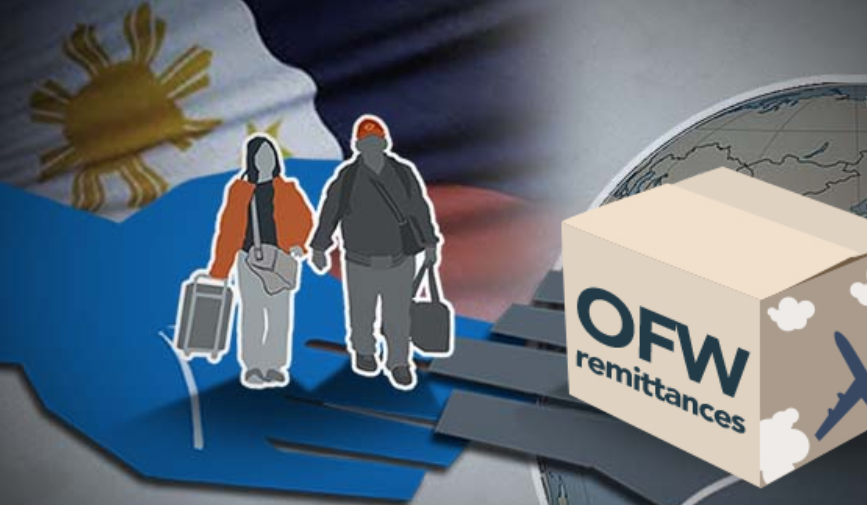According to the latest data released by the Bangko Sentral ng Pilipinas (BSP), personal remittances from overseas Filipinos have increased by 3.7% to US$2.88 billion in May this year — a truly positive turn for the Philippine economy.

IMAGE CREDIT: https://www.rappler.com/moveph/
This rise reflects a steady flow of financial support from Filipinos working abroad, contributing significantly to the country’s economy. In April this year, the central bank also reported that overseas Filipinos have been powering up the Philippine economy thanks to an uptick of 3.1% in cash transfers.
In a media advisory, the BSP attributed the rise in personal remittances to the following factors:
1) Increase in Worker Remittances
The central bank attributed the growth to increased cash transfers from both land-based workers with work contracts of one year or more, and sea- and land-based workers with contracts of less than one year.
This dual increase highlights the ongoing reliance on Filipino workers across different sectors and contract durations worldwide.
2) Cumulative Growth in Personal Remittances
For the January to May 2024 period, cumulative personal remittances reached US$14.89 billion, marking a 3% rise compared to US$14.46 billion during the same period in 2023.
This sustained growth underscores the critical role of remittances in the country’s financial health, providing a consistent source of foreign exchange and supporting domestic consumption.
3) Cash Remittances Through Banks
Cash transfers coursed through banks also saw an uptick, amounting to US$2.58 billion in May. This represents a 3.6% increase from the previous year. The growth in bank remittances is attributed to higher receipts from both land- and sea-based workers, indicating a broad-based expansion in remittance inflows.
The United States, Saudi Arabia, and Singapore emerged as key markets driving the increase in cash remittances. These countries have significant Filipino populations who regularly send money back home, making them crucial sources of remittance growth.
The United States recorded the highest share of overall remittances during the period, reaffirming its position as a major source of financial support for many Filipino families. Singapore and Saudi Arabia followed, demonstrating their importance as employment hubs for Overseas Filipinos.
Economic Implications
The rise in cash transfers is a welcome development for the Philippines, especially as the country continues to navigate global economic uncertainties. It plays a vital role in sustaining household consumption, which in turn drives economic growth.
The increased inflows also provide a buffer for the country’s balance of payments and bolster the central bank’s foreign exchange reserves.
Moreover, the sustained growth in money transfers reflects the resilience and dedication of overseas Filipinos, whose contributions remain indispensable to the country’s economic stability. Their financial support helps families meet essential needs, invest in education, and improve their overall quality of life.
Challenges and Future Outlook
While the increase in remittances is encouraging, challenges remain. The global economic landscape is fraught with uncertainties, including fluctuating oil prices, geopolitical tensions, and the lingering effects of the COVID-19 pandemic. These factors could impact the employment prospects and earning capacities of Overseas Filipinos.
Additionally, the Philippine government and central bank must continue to implement policies that support Overseas Filipinos and ensure the efficient transfer of remittances. This includes addressing issues related to remittance costs, financial literacy, and the protection of migrant workers’ rights.
Looking ahead, the sustained growth in remittances is expected to continue supporting the Philippine economy. The government remains optimistic that ongoing economic recovery efforts, coupled with the unwavering contributions of Overseas Filipinos, will pave the way for sustained economic growth and development.
According to the BSP, the 3.7% rise in personal remittances to US$2.88 billion in May signifies the crucial role of overseas Filipinos in the Philippine economy. Their contributions not only provide financial stability for their families but also fuel the country’s economic progress.
As the nation moves forward, the support of its global workforce remains a cornerstone of its economic resilience and growth.







